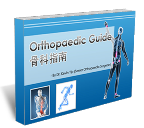- Ankle Pain
- Knee Pain
- Elbow Pain
- Neck Pain
- Heel Pain
- Lower Back Pain
- Fracture Pain
- Shoulder Pain
- Shoulder Dislocation
- Shoulder Instability

Join Our Mailing List to get Orthopaedic Guide eBook!
Call +65 64712698
for appointment

Specialist In Orthopaedic Surgery & MBBS(UK), FRCS(EDIN), FAM(SING), FHKCOS(ORTHO)
Shoulder Instability
What is Shoulder Instability?
Shoulder instability is a condition occurring when structures surrounding the shoulder joint (glenohumeral joint) do not function to maintain the ball within its socket. If the glenohumeral joint is too wobbly, partial sliding happens, which if untreated, eventually promotes dislocation of the joint from its original position.
The Symptoms
Patients with this condition usually complain of an uncomfortable feeling, like their shoulder is about to slide or get removed. These are common complaints of baseball pitchers or volleyball players. The apprehension of something about to dislocate may prevent their abilities to play their sports; and persistence to perform the activity will promote chronic shoulder instability. In this case, there is now complete stretching of the shoulder capsule and ligaments.
Possible Causes
Frequent shoulder dislocations promote shoulder instability. When torn ligaments heal too loosely, the shoulder is prone to repeated episodes of dislocation and instability. In patients below 35 years old who sustain traumatic dislocation, an 80% probability of shoulder instability is expected. Congenital disorders such glenoid dysplasia also promotes the condition.
Am I at Risk?
Young, athletic individuals usually are the common group of patients that get affected with shoulder instability. When individuals become more and more active, there is greater possibility of shoulder dislocation to happen. Once shoulder dislocation first occurs, recurrent instability will develop. This is usually present with prior shoulder dislocators. Such individuals include volleyball players, swimmers, and baseball pitchers. Nevertheless, not all shoulder instability cases are only present with these athletes. Patients with disorders in their connective tissues, such as the “double-jointed” patients, are also prone to frequent shoulder dislocation and instability.
Physical therapy and rehabilitation are almost always the treatment regimen for patients with shoulder instability. Therapies would focus on strengthening exercises that will help in maintaining the shoulder in proper position. If therapies fail, surgical procedures will be suggested. Your physician will determine what procedure fits you. If a loose shoulder capsule is the main cause, then tightening of this shoulder capsule is considered. However, if tearing of the ligaments is the main predisposing factor, a Bankart repair can be performed to fix this ligament.
For more information or to book and appointment with the Singapore Orthopaedic Clinic, you can call (+65) 6471 2698. Our hotline is open 24 hours a day. You may also send us an enquiry for appointment.
